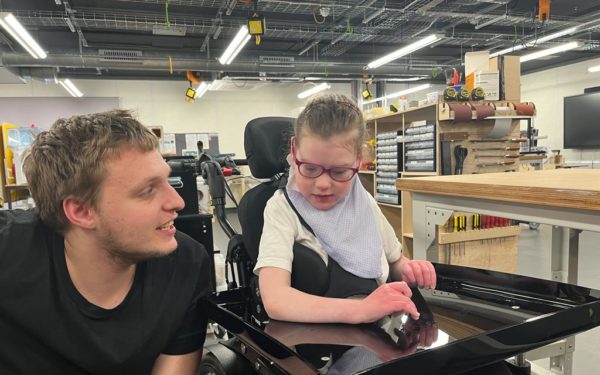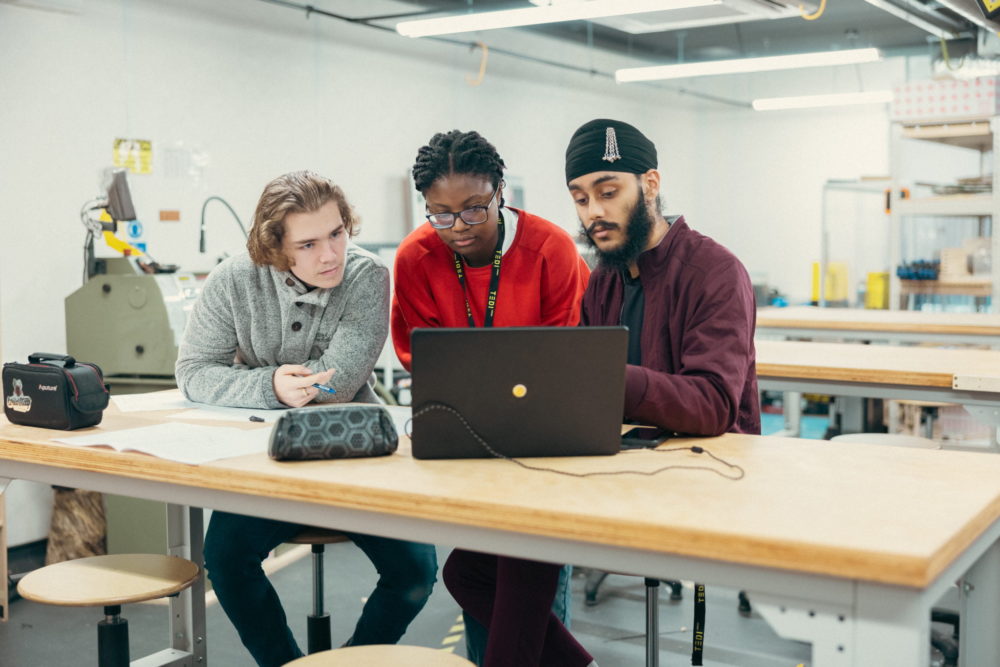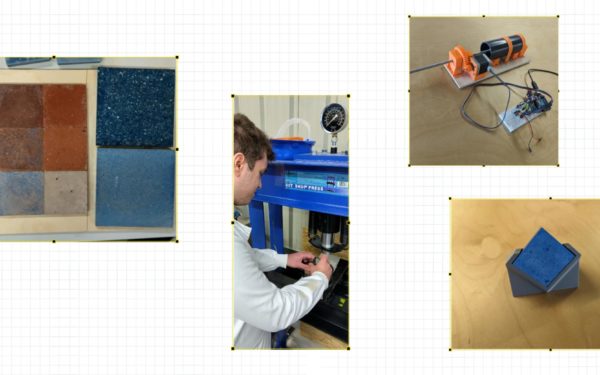
Student Blog: Top Tips for Teamwork

First-year student, Aisha, shares her top tips for effective engineering project teamwork.
TEDI-London is an institution proud to deliver an innovative engineering degree where hands on learning models the reality of professional engineering: the structure of the course mirrors the collaborative nature of the field as it largely consists of group work. Teamwork capability, on top of technical knowledge and application are put to the test almost every module, preparing students to emerge as well-rounded engineers.
The science of teamwork
To be honest, mastering technical knowledge and its applications can sometimes be the easy part of our course. One of the biggest challenges that you can face when studying at TEDI-London is groupwork. It might sound trivial compared to solving complex math problems or applying physics theories to challenging engineering issues, but the trickiest challenge for many of us is learning to collaborate effectively with a diverse group of barely familiar peers from varying walks of life.
Teamwork is not a precise science, which can be a tough pill to swallow for STEM-oriented minds! However, after a year filled with rigorous yet enjoyable experiences at TEDI-London, some of us first-year students have gained valuable insights into teamwork and can share some nuggets of wisdom. These insights are not only crucial for aspiring engineers, but also across all subject fields. Afterall, teamwork, is a versatile and extremely helpful skill.
#1 Be open-minded to the ideas of others
At the heart of engineering are people that dared to dream and think outside of the box. Imagine telling someone 100 years ago that you could read information from a glowing screen on a sleek metal box – that would have been unheard of, and they might have even cried ‘witchcraft’! But innovators did more than just dream, they expressed their unique ideas without fear. Now imagine where we would be if the peers of these dreamers had not been open-minded to their ideas. You certainly wouldn’t be reading this article, and possibly couldn’t even search for ‘top tips for teamwork.’
Since the nature of engineering is very collaborative, the inventions we see today are the efforts of many. Any one of the innovations that bring us comfort today might not exist without fellow designers and engineers being receptive to new ideas. Before you shoot down that “crazy” idea your teammate has presented to you, take a moment and really consider it – you might have the next smartphone on your hands.
Group work is so powerful because it combines the strengths of many to produce a result that is greater than the sum of its parts. This magic is only possible through excellent communication – really listening, not just listening to respond, but to truly understand what is being said. “
#2 Be a good listener, make everyone feel heard
Speaking of out of the box suggestions, how can you be open minded to unique ideas if you are unable to fully grasp them? Not only does poor listening lead to missed opportunities, it can also leave some feeling unheard, underappreciated, and dejected – poison to group morale. From personal experience, I’ve found that poor communication makes collaborating much more difficult. Group work is so powerful because it combines the strengths of many to produce a result that is greater than the sum of its parts. This magic is only possible through excellent communication – really listening, not just listening to respond but to truly understand what is being said.
A bonus tip would be to repeat what you thought was said to you – this lets the speaker know if you have understood what they meant and to rephrase if not. This practice also pushes you to listen more actively. Knowing you’ll need to repeat what was said, you naturally change your body language to face the speaker, make eye contact, stop planning what you’re going to say next and get present with people.
#3 Perfect your organisation skills
In a team, coordination is essential to create a cohesive product; everyone needs to be in sync. Unfortunately for the more free-flowing creatives, this means adhering to a schedule and meeting deadlines -and that means getting organised! While not everyone’s strength, organisation is a necessity for harmonious and productive group work. Don’t be discouraged – like many life skills, organisation and time management can be practiced and improved. Whether you use a simple method like a to do list or a more complex one like the Eisenhower matrix – the most important thing is finding what sticks to make you and your teammates’ lives easier.

#4 Bring positive energy!
As previously stated, high team morale is the glue that allows the magic of team work to take place. Rather than producing solid outcomes, this tip is often felt rather than seen. Positive energy is the lubricant that encourages you to be open minded when a teammate suggests something seemingly impossible; drives you to practice active listening even if the conversation is quite tedious; inspires you to get a little more organised; and is the ice breaker that opens the doors for synergy and efficient work. Of course, if you’re having a bad day or a tough week, you don’t have to force a smile. If you’ve only given 10% but 10% was all you had, you’ve really given 100%.
Read more TEDI-London student experience stories.
More Student blogs articles


Student story: You don’t have to choose between science and arts – you can do both
